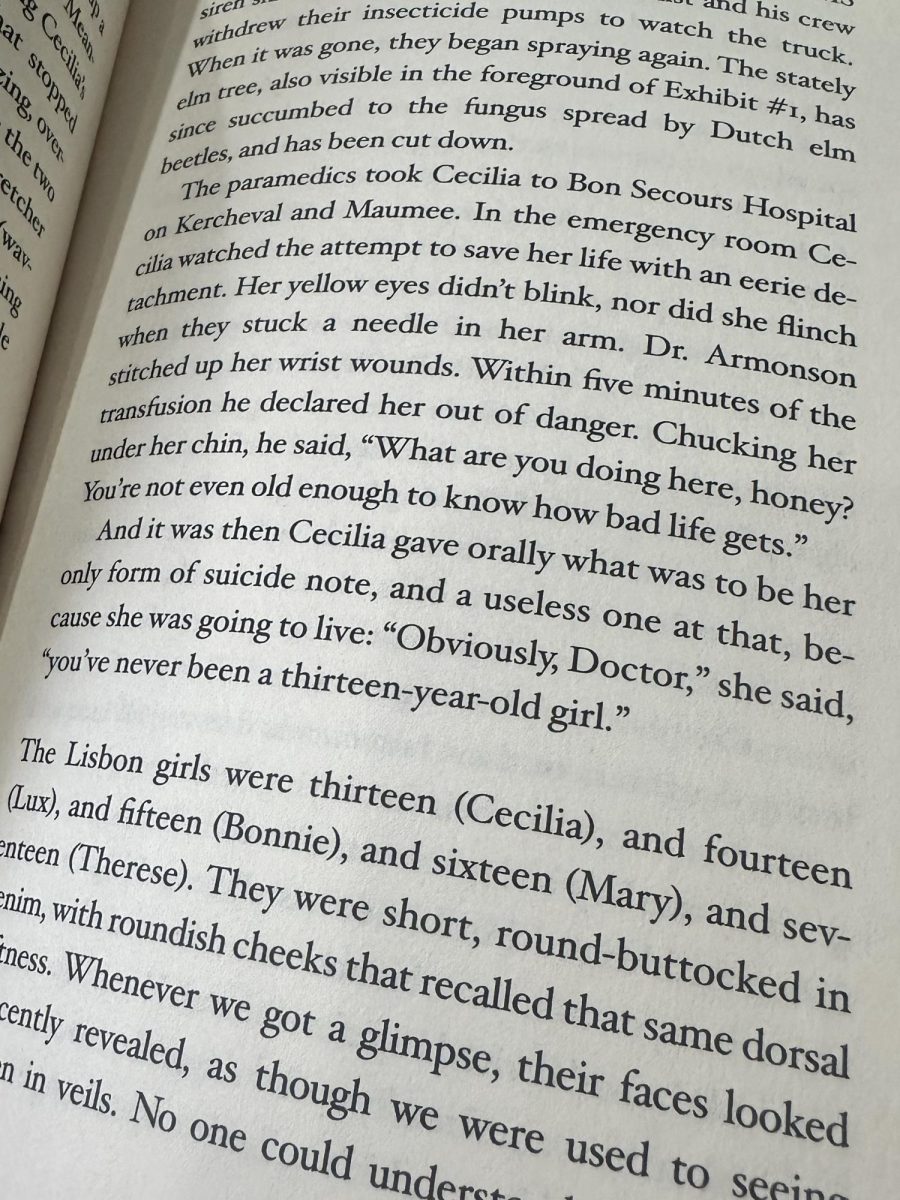Few novels stand the test of time as beautifully as “The Virgin Suicides.” When the story explores timeless and insightful themes like the objectification of young women, mental health, and depression, its societal relevance remains undeniable. Jeffrey Eugenides’s coming-of-age novel tackles these issues head-on, shedding light on the reality of adolescent lives shaped by silence and repression due to a community unwilling to recognize their pain.
Set in 1970s suburban America, “The Virgin Suicides” follows the tragic lives of five sisters: Cecilia, Bonnie, Lux, Therese, and Mary Lisbon. The story is told through the fragmented memories of neighborhood boys, who narrate the events 25 years after the girls’ suicides.
Their recollections are warped by time and bias, proving them an unreliable source of the girls’ true emotions before their deaths. Despite the sisters battling with mental health, the boys were too blinded by personal fantasies about their idealized versions of the girls to notice. They heavily romanticized the sisters’ beauty and passivity, perceiving them as pure and perfect, and failed to notice the deeper struggles the girls faced.
The boys represent a common societal problem still prevalent today: the objectification of women. In media and everyday interactions, women are often reduced to their looks. What may begin as admiration can quickly escalate to unwanted fetishization or harassment. This treatment reinforces the harmful notion that women are valued more for their appearance than for their true selves.
“The Virgin Suicides” also addresses the dangers of untreated mental illness and the stigma surrounding it. The Lisbon sisters’ deteriorating mental health is met not with empathy, but with confusion and disregard by their community. In a time when open conversations about depression were still rare, the sisters were left to suffer alone, eventually leading to their collective decision to commit suicide.
Although awareness of mental health has improved in today’s world, many young people still experience the same neglect and misunderstanding of emotional distress. If this trend continues, other individuals may meet similar unfortunate fates, a miserable pattern that can be easily avoided.
Even 32 years after its publication, “The Virgin Suicides” continues to resonate with generations because it confronts uncomfortable truths: that depression can hide behind a pretty face, that young women are more seen than heard, and that society’s failure to empathize has devastating consequences.


































